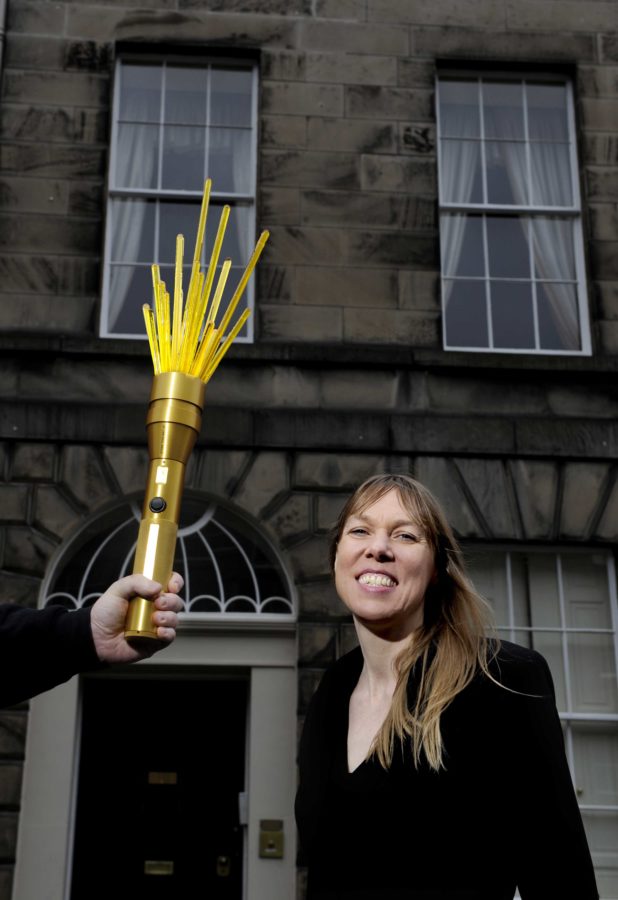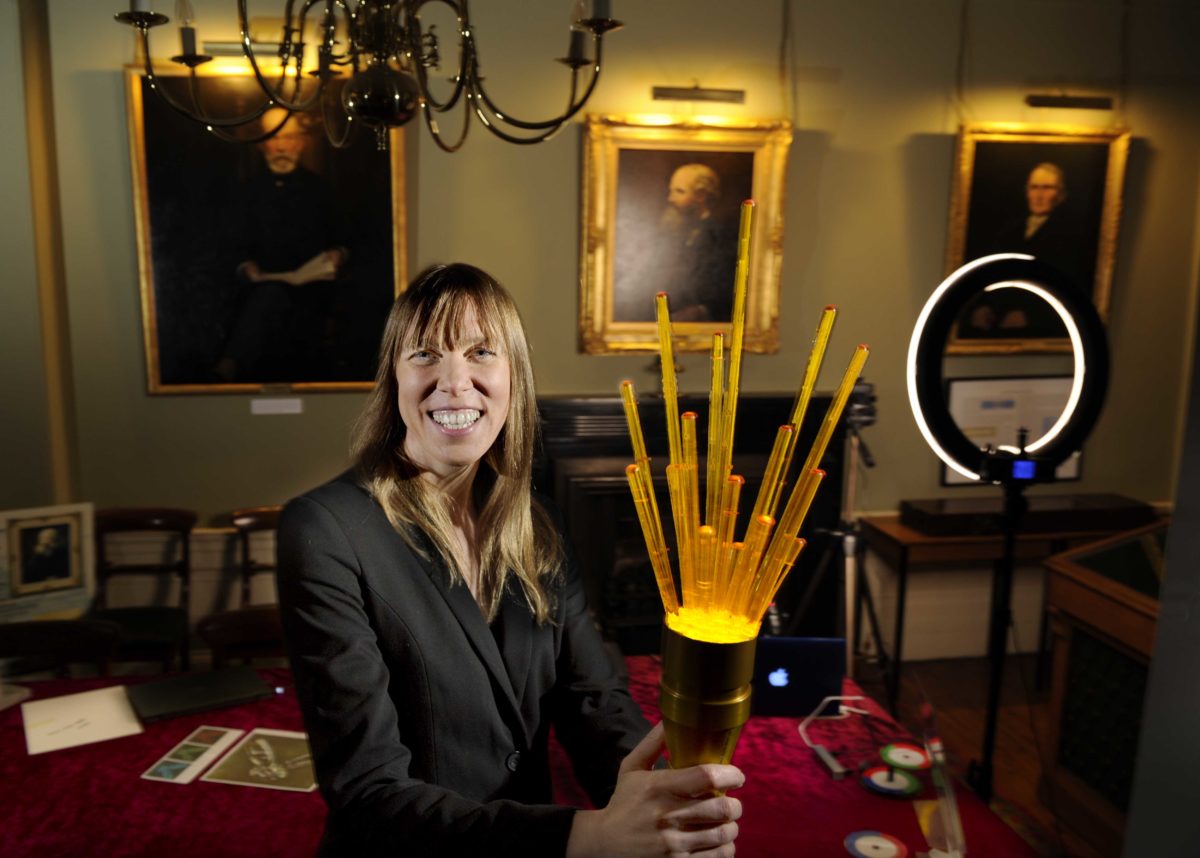Big Bang Week will celebrate James Clerk Maxwell
Scotland’s Astronomer Royal and a black hole hunter are teaming up for a special Big Bang Week celebration of James Clerk Maxwell – one of the greatest scientists of all time.
The 19th century scientist and mathematician, born in Edinburgh but raised in Dumfries and Galloway, is credited with many achievements including the theories that explain light and electromagnetism, being the father of electrical engineering and even creating the first colour image.
Professor Heymans met Professor Martin Hendry at 14, India Street to explore Maxwell’s birthplace ahead of a live-streamed event entitled Scotland’s Einstein, on Thursday 10 March.
Big Bang Week (9-12 March) is an annual children and young people’s festival of science and astronomy, organised by the Wigtown Festival Company, featuring in-person activities in Dumfries and Wigtown, plus digital events that audiences can tune into from all round the world.

Professor Heymans said: “Martin and I are really looking forward to this event – we’ll be broadcasting from the museum at James Clerk Maxwell’s birthplace in central Edinburgh, explaining his amazing scientific discoveries, and what they mean for us today.
“And we’ll be bringing things right up to date and showing people some of the latest discoveries in astronomy and astrophysics that have been made possible because of his amazing, influential work back in the late 1800s.”
Maxwell’s revolutionary understanding of energy paved the way for technology that is fundamental to modern life including mobile phones, bluetooth and broadband. He also laid the foundations for Einstein’s theory of relativity.
Despite all this his life and legacy remain relatively unknown even in Scotland – Professor Heymans only learned much about him when she took her undergraduate degree at the University of Edinburgh, where she is now Professor of Astrophysics.
One of her priorities in her role as Scotland’s Astronomer Royal is to promote diversity in science and to promote astrophysics and astronomy through events like Big Bang Week
She said: “Some of the greatest scientists come from Scotland, or have Scottish heritage, and we should celebrate them and make people more aware of them. So it’s great that we have these festivals celebrating all the science that we’re doing in Scotland.
“And we also have the some of the darkest skies in Western Europe, so Scotland is one of the best places to come and stargaze and to really appreciate the gorgeous night sky.”
Big Bang Week will have an emphasis on women in STEM (science, technology, engineering and maths) with events featuring professional stargazer Emily Levesque and space station astronaut Nicole Stott.
Professor Heymans says that while increasing numbers of young women are studying subjects such as astrophysics, and taking academic posts, the pace of change needs to be far quicker or it will take many decades before there is parity.
Originally from England, her own interest in the stars was sparked by a childhood holiday in Scotland, and it’s a joy she wants to share with others.
She said: “I remember an absolutely crystal-clear dark skies night and being away from the city and the bright lights for the first time. There was just so much up there that I’d never seen before in the big city. And, and I loved physics, loved maths and loved science. And astrophysics is just a lovely blend of physics maths and a gorgeous way of marvelling at our wonderful universe.
“So something I really want to do is help other astronomers across Scotland share their enthusiasm – and there are so many brilliant amateur astronomers out there in Scotland. And the numbers are growing really rapidly. Membership of societies has grown by about a third during the pandemic. I think that it’s partly because people couldn’t go out to explore, so they looked up to explore instead.”
Professor Heymans will discuss Clerk Maxwell with Martin Hendry, Professor of Gravitational Astrophysics and Cosmology at the University of Glasgow, who is part of the multi award-winning teams using advanced laser technology to detect collisions between black holes far away in the cosmos.
Big Bang Week is also includes events with authors such as Annaliese Avery and Vashti Hardy and is part of Scotland’s Year of Stories which spotlights, celebrates and promotes the wealth of stories inspired by, written, or created in Scotland.
Adrian Turpin, Artistic Director of Wigtown Festival Company, said: “Big Bang Week takes its inspiration from the magnificent dark skies of south-west Scotland and its International Dark Sky Park. But we hope to bring together audiences from across the globe and encourage them to look up in wonder at the cosmos.”
The Maxwell birthplace collection
While at 14, India Street Catherine and Martin saw objects including a Zoetrope, which was used to create the illusion of moving images – James Clerk Maxwell managed to improve the original design by adding lenses to eliminate distortion.
They also saw the Maxwell Torch, created in 2015 by Mike Stoane Lighting of Loanhead, Edinburgh, for The International Year of Light and celebrating the 150th anniversary of James Clerk Maxwell’s papers that linked electric and magnetic forces. His theory of electromagnetism underpins most of the technology we take for granted. A major breakthrough was to show that light is an electromagnetic wave.
- For more see https://www.clerkmaxwellfoundation.org
